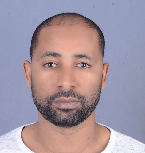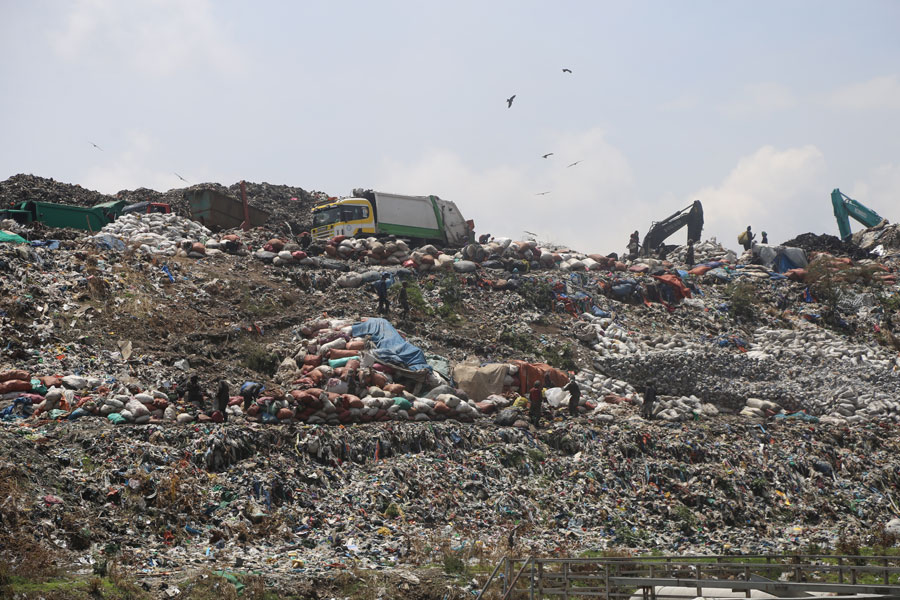
Dec 14 , 2019
By Marew Abebe
The Sidama Zone’s quest for regional state status has been in limbo for a long period, since it was legally demanded from the very inception of federalism in the country. In July 2018, representatives of the Sidama Zone triggered a constitutional provision of the Ethiopian federation to transform Sidama from a zonal level, akin to a district, to a fully-fledged regional state in the Ethiopian federation. The Sidama Zone is currently part of the Southern Nations, Nationalities & Peoples' Region (SNNPR), one of the nine regional states of the Ethiopian federation structured in this form since the early 1990s.
The coming of Abiy Ahmed (PhD) as prime minister of Ethiopia in April 2018 and the subsequent reform in the country gave a fresh impetus for the Sidama statehood demand and it’s revitalized quest. The Zone even had planned to conclude a unilateral decision if the federal government hesitated to do so.
The voting for a referendum on statehood was organised by the National Electoral Board of Ethiopia on November 20, 2019. With 98pc of voters voting yes to statehood, the Sidama Zone opted to form their own regional government to become the 10th regional state in the Ethiopian federation.
Unfortunately, the results of the referendum could potentially open a Pandora's box, especially in the Southern region amid concerns it could encourage similar demands and inflame tensions in the hugely diverse state. The creation of the Sidama state - the first ever new state created in Ethiopia since the current nine-state federation came into being - is a test for Ethiopia’s constitutional provisions that allow constituent units to be created along lingo-cultural lines.
The referendum result can pose the beginning of a political crisis to the new state and the Ethiopian federation as mapping out the regional boundaries begins. The partitioning or mapping of the Sidama State with the bordering regional governments of Oromia, the Gedeo Zone and the Southern region it came out of, will be a massive challenge.
The Sidama Zone referendum isolated the Gedeo Zone from the Southern Region and thus the Zone – a small local administration in the region - will be detached from its regional state. It will now be stuck between the two regional states of Sidama and Oromia. Either the Gedeo Zone will have to be a regional state by default or it will cause major administrative difficulties.
The referendum may encourage the remaining zonal administrations to demand their own respective statehoods. Currently, about 10 of the 13 zones that make up the Southern region have active grassroots movements calling for their areas to be upgraded to regional states, potentially leading to the eventual dissolution of the Southern Region. Already, the Wolayta Zone has filed its request for a statehood referendum, with that constitutional deadline coming due this month. Other groups could follow. Thus, Sidama statehood could trigger uncertainty in the restive region that is home to around one fifth of Ethiopia’s population.
The Prime Minister indicated that the Sidama State would require constitutional amendments, which need two-thirds approval in a joint sitting of the two federal legislative houses, and by six of the current nine regional states. This is a big procedural undertaking.
The Sidama State's status to be one of the members of the federation needs a constitutional amendment of the Ethiopian federation. This is because the Constitution has made an exhaustive list of those nine regional states that make up the federation. The constitution must be amended to change the number of regional states that make up the federal arrangement.
The amendment procedure in the Constitution enshrines the basic terms of the compact governing the relationship between the two tiers of government. The procedure for amending the Constitution has to involve the participation of federal and state governments.
The formation of the Sidama State is not the end of the story in the Ethiopian federation. Since the Constitution guarantees every nation, nationality and people a procedural right to demand statehood, even including the right to secession, the demand for self-administration will be endless. Currently, dozens of people’s groups have requested distinct identity recognition including the Danta, Wolene and Mesemese people, whereas those who have already gained onal administration are demanding statehood status.
In the extreme case, regional states can legally secede from the very federation and form an independent sovereign state. While such moves can meet the demands of the claimants, the endless quest for self-determination can threaten the stability of the country.
The Constitution was designed with the specific political context prevailing at the time and lacks well-established and detailed legal procedures to handle future self-administration quests. It was assumed that a strong government and a party with disciplined democratic centralism could handle any attempts of secession or self-administration demands. This could be possible when the vertical federalism (the intergovernmental relationship between the central and the regional governments) is strong, as was the case up until 2016. The coalition of the ruling parties has now weakened due to more than three years of anti-government protests and the ruling coalition’s own reforms. Thus it is being challenged to execute any decisions that require the consent of the constituent units of the federation.
The Ethiopian federation neither adopted detailed specific law that would regulate the division of assets and debts between the old state and the newly established one nor formulated a referendum law. The absence of legal documents to be referred to when referendum happens led either to disagreement over the issue between the parties or to handling matters with political decisions rather than legal ones.
To avert the problem, the government must accelerate its plans and strategies for dealing with the existing and other newly energized statehood aspirations. Great care must be taken to fulfill the minimum federal and international legal requirements, while the Sidama regional state enacts its own regional constitution to accommodate minorities found in the newly created region and to consider the multicultural nature of the Ethiopian federation.
What should be noticed is that the Ethiopian constitutional arrangement does not give any power to the federal authority to decide on the formation of new regions. The duty of the federal government is merely clerical work that has to be effected by parliament.
Learning lessons from the first ever statehood referendum, it is important to devise a relevant detailed legal framework to handle future demands of statehood and to solve problems associated with it. The already fragile political condition in the country cannot afford the instability and chaos that might follow from the disorderly partitioning of an existing state.
PUBLISHED ON
Dec 14,2019 [ VOL
20 , NO
1024]


Commentaries | Jul 26,2025

Viewpoints | May 11,2019

Radar | Nov 06,2021

Commentaries | Jul 19,2025

Viewpoints | Aug 03,2019

Agenda | Mar 25,2023

Agenda | Oct 03,2020

Featured | Feb 01,2020

Fortune News | Jul 11,2021

Commentaries | Mar 11,2023

Photo Gallery | 180457 Views | May 06,2019

Photo Gallery | 170656 Views | Apr 26,2019

Photo Gallery | 161710 Views | Oct 06,2021

My Opinion | 137285 Views | Aug 14,2021

Dec 22 , 2024 . By TIZITA SHEWAFERAW
Charged with transforming colossal state-owned enterprises into modern and competitiv...

Aug 18 , 2024 . By AKSAH ITALO
Although predictable Yonas Zerihun's job in the ride-hailing service is not immune to...

Jul 28 , 2024 . By TIZITA SHEWAFERAW
Unhabitual, perhaps too many, Samuel Gebreyohannes, 38, used to occasionally enjoy a couple of beers at breakfast. However, he recently swit...

Jul 13 , 2024 . By AKSAH ITALO
Investors who rely on tractors, trucks, and field vehicles for commuting, transporting commodities, and f...

Nov 1 , 2025
The National Bank of Ethiopia (NBE) issued a statement two weeks ago that appeared to...

Oct 25 , 2025
The regulatory machinery is on overdrive. In only two years, no fewer than 35 new pro...

Oct 18 , 2025
The political establishment, notably the ruling party and its top brass, has become p...

Oct 11 , 2025
Ladislas Farago, a roving Associated Press (AP) correspondent, arrived in Ethiopia in...

Nov 2 , 2025
The National Bank of Ethiopia (NBE) has scrapped the credit-growth ceiling that had s...

Nov 2 , 2025 . By SURAFEL MULUGETA
The burgeoning data mining industry is struggling with mounting concerns following th...

Nov 2 , 2025 . By YITBAREK GETACHEW
Berhan Bank has chosen a different route in its pursuit of a new headquarters, opting for a transitional building instea...

Nov 2 , 2025 . By BEZAWIT HULUAGER
Nib International Bank S.C. has found itself at the epicentre of a severe governance...